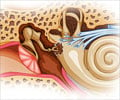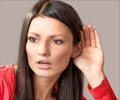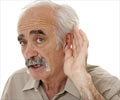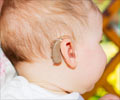A new guideline to improve implementation and awareness on sensorineural hearing loss (SSNHL) has been issued by The American Academy of Otolaryngology-Head and Neck Surgery Foundation.

‘Sudden hearing loss is a frightening symptom for patients that can dramatically decrease their quality of life. Prompt recognition and management of sudden sensorineural hearing loss may improve hearing recovery and quality of life. ’





For most patients with SHL, their medical journey often starts at an emergency room, urgent care clinic or primary care physician's office, with dizziness present in 30 to 60 percent of cases. The initial recommendations of this guideline update address distinguishing SSNHL from CHL at the initial presentation with hearing loss. They also clarify the need to identify rare, nonidiopathic SSNHL to help separate those patients from those with idiopathic sensorineural hearing loss (ISSNHL), who are the target population for the therapeutic interventions that make up the bulk of the guideline update. By focusing on opportunities for quality improvement, this guideline should improve diagnostic accuracy, facilitate prompt intervention, decrease variations in management, reduce unnecessary tests and imaging procedures, and improve hearing and rehabilitative outcomes for impacted patients. "While the original guideline was a big step, this update provides an opportunity to improve diagnostic accuracy, facilitate prompt intervention, reduce unnecessary tests, and improve hearing and rehabilitative outcomes for patients," said Dr. Schwartz. "Sudden sensorineural hearing loss, particularly when accompanied by tinnitus and dizziness, can cause a great reduction of quality of life. Patients may experience fear and frustration at the inability to identify a cause for their hearing loss. The impact of this condition on a patient's function and well-being underlies the importance of an updated guideline to optimize care of patients with this debilitating condition."
Source-Eurekalert















